I loved seeing the Lancashire Police Dog Unit canines in action - but I wouldn't want to be on the wrong end of them!
and live on Freeview channel 276
PC Byers introduced me to her two dogs, while one of her colleagues performed a demonstration.
I watched PC Emma Mills carry out some exercises with her general purpose dog, Juna – who is trained to jump over a six foot fence, and bite to hold and detain suspects.
‘A brilliant tool unless you’re on the wrong end of one’
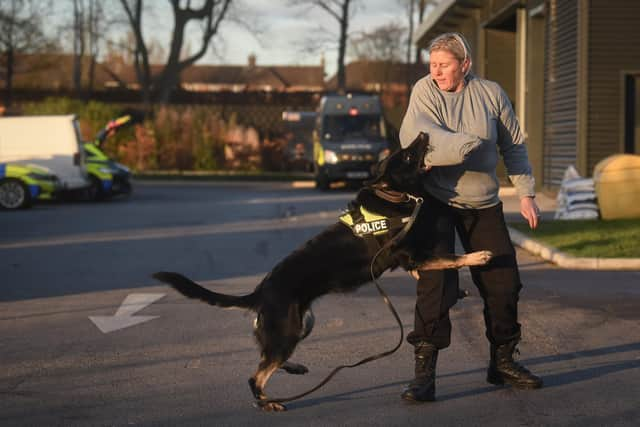

Advertisement
Hide AdAdvertisement
Hide AdSue told Blackpool Gazette: “They’re a brilliant tool unless you’re on the wrong end of one. We call them bitey-dogs, but they're not trained to attack, they bite to hold and that’s it.”
Sue’s general purpose dog Tyco is a Belgian Malinois – although German Shepherds and Dutch Herders are also used.
Sue added: “The latter work a little bit longer and are a bit more athletic than German Shepherds so ultimately they’re better value for money.”
Why are spaniels used by police?
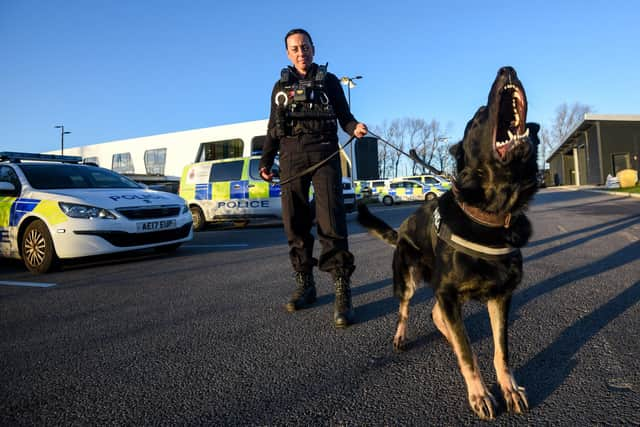

At the time I met with PC Byers, she was preparing for her second dog – a Cocker Spaniel named Benji, to go through highly specialist training as a detection dog.
Advertisement
Hide AdAdvertisement
Hide AdThe intensive six week course teaches the PD’s to search inside vehicles, buildings and woodlands to sniff out various items, including drugs.
Although Benji has since failed his training, Sue explained why spaniels are suited for this type of work.
"He [runs up and down] the hallway [and jumps] on the worktops. We need them to be very boisterous so that’s the expectancy. He thought he was having a whale of a time but what he was actually doing was being introduced to new environments.”
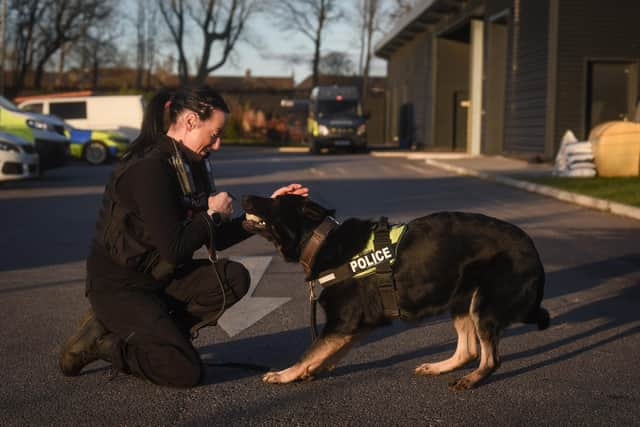

The dogs have such a powerful sense of smell that they can detect even a tiny trace of the substance they are trained to find - whether drugs, cash or human remains.
Advertisement
Hide AdAdvertisement
Hide Ad“You can liken it to three officers searching for a tiny item up and down a stretch of grass. A dog can find it in 15 seconds.”
But, it’s not uncommon for dogs to fail the course – some turn out to be unsuited to working life as a police dog.
This may be fixed over time, but the police will never force the animals if it’s not right for them.
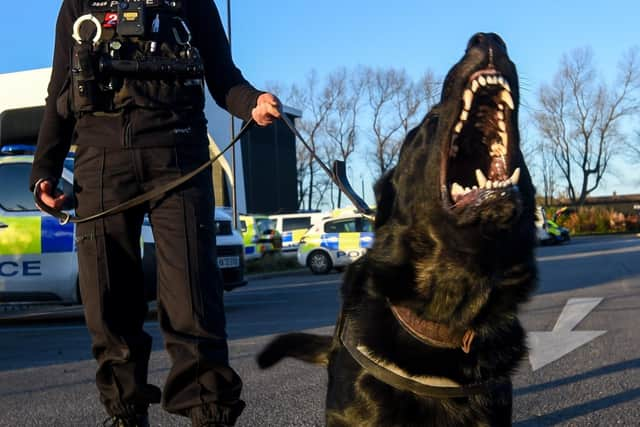

Sue said: “Sometimes they do the training but its just a bit different in practice, when the adrenaline is going. If its a bit of weakness or stress we’ll see if we can fix it, but if they aren’t happy then we won’t force them.”
How are drug sniffer dogs trained?
Advertisement
Hide AdAdvertisement
Hide AdIt’s all fun and reward based - by reinforcing good behaviour with a tennis ball.
Sue added: “They just think it's all a brilliant game. They’ll have a rest, see other dogs have a go and come back with waggy tails and tennis balls so they are raring to go again. They don't realise the importance of the role that they do for us.”
The scents are introduced by putting the items inside a vacuum pack that is triple-sealed so there is no cross contamination and no risk to the dog.
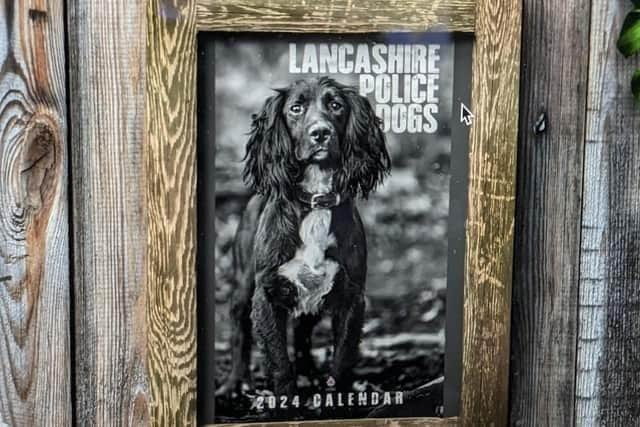

The bag is then hidden with a tennis ball for the dog to sniff out.
Advertisement
Hide AdAdvertisement
Hide Ad“They're still looking for the tennis ball but there's the added fine scent. They get a very weak smell of it and before they know it they know ‘that smell gets me my ball’”
Sue has learnt to trust her dogs even if she has doubts.
“If they’re indicating somewhere, it’s for a reason. Once [a dog] was indicating on a Christmas tree and it turned out the drugs were hidden inside a bauble.”
How long do police dogs work before they retire?
Police dogs retire early enough for them to enjoy being a ‘normal dog’ for their final innings.
Typically this is around seven or eight for general purpose dogs, and ten for scent detection dogs doing less physical work.
Advertisement
Hide AdAdvertisement
Hide AdSue said: “We don't want to work them for the full life expectancy. Why would we? We let them relax just as we do in retirement.”
In some cases the dogs are rehomed, but the majority will remain at home with their handlers after they retire, having built up a special bond throughout their working life.
"It would be hard to rehome these dogs, and they absolutely deserve the best. They may cost a lot in medication and vet bills, and need hydrotherapy. And we’ve trained the [general purpose] dogs in a certain way that means you can’t just take them out to the local park and unclip them like you do a pet dog.”
Do police dogs have a pension?
Police dogs do not get a pension – so the Retired Lancashire Police Dogs charity steps in to help fund the cost of keeping them healthy in their old age.
Advertisement
Hide AdAdvertisement
Hide AdLast year the charity paid out £4,000 toward medical bills and they will pay 60% of the treatment costs if they need it.
Sue said: “Police cover all veterinary costs until they retire, but after that point they don’t get anything. [The charity] provides the financial support they need in retirement so they can take on the dog without all the expenses.”
Jump over high fences comes with risks
And the nature of their job means that some of the dogs have complex medical needs later on – especially for the general purpose dogs who are trained to jump over high fences and chase suspects through the woods.
“It all comes with risks especially with the older dogs, its about managing risks but sometimes it out of our hands. It might be that they are chasing a suspect through a dark woods and get caught in a branch or fall in an embankment. You try but accidents happen. Once they’ve had a serious injury they won’t work again.”
How to order your Police Dogs 2024 Calendar
Advertisement
Hide AdAdvertisement
Hide AdYou can help the Retired Lancashire Police Dogs charity by purchasing a fundraising calendar.
The adorable calendars feature some of the well-loved, heroic PD’s who regularly help to catch criminals and make Lancashire a safer place.
All proceeds go to the https://retiredlancashirepolicedogs.co.uk/ to help give retired police dogs the best possible care once they stop working.
The calendars are £12.00.
Send bank transfer to
11-05-36
10245666
S Smith
OR
PayPal
Once payment sent please email your address to [email protected] who will confirm postage (this will be done asap after payment received but please be patient as it is all done out of my working hours)
